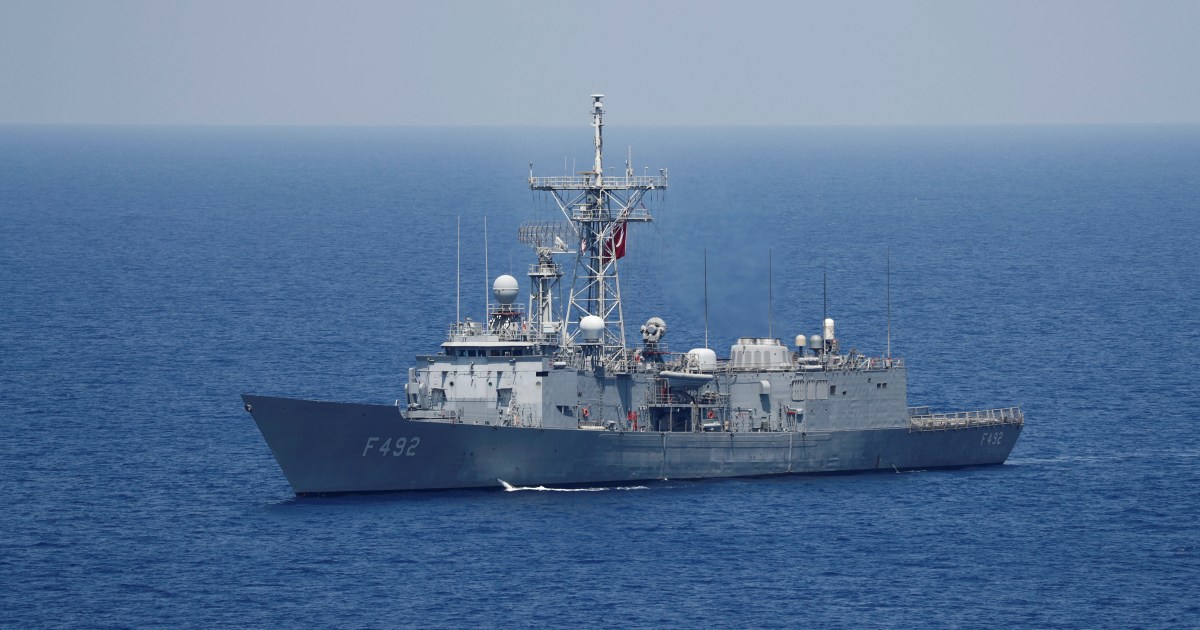Tensions are escalating between Turkey and Greece, and both of them are conducting military exercises over the background of their conflict over gas-rich areas in the eastern Mediterranean. Ankara has ruled out retreating, and the European Union has indicated its bias to Greece, while the German Foreign Minister is holding talks with the two sides with the aim of containing the escalation.
Ankara and Athens announced that, from Tuesday, they are holding parallel military exercises in the eastern Mediterranean.
On the Greek side, a military source said this morning, Tuesday, that it is "a flight training off the Greek islands of Crete, Karpothos and Kastellorizo," in which only Greek forces will participate.
Greece will conduct a training exercise with the UAE air force soon, while another exercise will take place in the south of Crete between Greek and American forces, according to the source.
On the Turkish side, the Ministry of Defense announced the conduct of "transitional military exercises" with the participation of "Turkish and allied ships," on Tuesday in the south of the Greek island of Crete. Turkish media described the exercises as a "response" to the naval notice (NAFTEX) issued by Athens on Sunday.
Work continues, and the
island of Kastelorizo is not fueling Ankara's anger. This island is located two kilometers from the Turkish waters. Athena considers that the waters surrounding this island are under Greek sovereignty, but Ankara responds by saying that this site deprives Turkey of gas-rich marine areas that extend to hundreds of thousands of kilometers.
Turkish President Recep Tayyip Erdogan said Monday, "From now on, Greece will be responsible for the slightest concern that may arise in the region. Turkey will not take the slightest step back."
For his part, Turkish Energy Minister Fatih Donmez said today, Tuesday, that "exploration ships (Turkish) continue their operations as scheduled," expecting "the opening of exploration wells in promising places."
Window of dialogue
With the continuing escalation, Germany sent its Foreign Minister to Athens and Ankara to try to calm the situation. German Minister Heiko Maas said, "The window for dialogue between Greece and Turkey must be open now and not close."
Maas said that Germany urged Greece and Turkey to resolve the dispute through direct talks, warning of the danger of a military confrontation.
"The current situation in the eastern Mediterranean is like playing with fire; any small spark can lead to disaster," he said.
"Instead of new provocations, we need to take detente measures and start direct talks," the minister added.
Germany, which holds the rotating presidency of the European Union, fears a "new escalation" between Turkey and Greece, the two members of NATO. A statement issued by the German Foreign Ministry stated that the escalation "can only harm everyone, especially those directly involved in the place."
During a meeting held just before noon, German Foreign Minister and Greek Prime Minister Kyriakos Mitsotakis stressed the "necessity of de-escalation." "The initiative of Germany, which holds the presidency of the European Union, works positively in this direction," the Greek government said in a statement.
Afterwards, Maas met his Greek counterpart Nikos Dendias, before holding a meeting in the afternoon in Ankara with Turkish Foreign Minister Mevlut Cavusoglu.
The European position,
but the German Foreign Minister stressed at the same time that his country and the European Union stand with Greece in its crisis with Turkey.
According to his Foreign Minister Josep Borrell, the European Union called on Ankara to stop "immediately" its gas exploration operations in the Mediterranean.
The Greek foreign minister expressed his country's readiness for dialogue with Turkey to defuse tension regarding energy resources in the eastern Mediterranean.
After the meeting with his German counterpart in Athens, the Greek minister affirmed that his country would continue to defend what he described as its sovereign rights at the same time.
He added that Turkey continues what he described as provocations and violating international law, despite calls from its neighbors and allies to stop the escalation of tension, he said.

